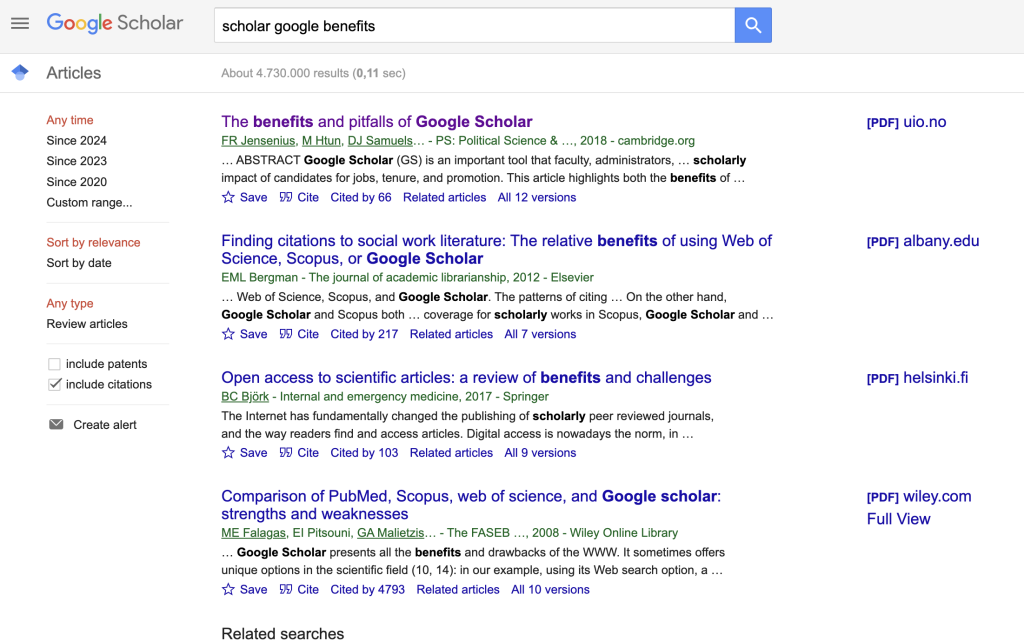Early Google
As I was growing up, I was always told to Google something if I didn’t have the answer to a question. As Google was invented shortly after I was born, I used what can only be described as the early years of Google. Google would provide me with a plethora of articles and scholarly documents in which I usually found all the answers to my questions. If I couldn’t find an answer, I would have to fine-tune my search by using narrowed-down key terms in the hope of getting my answer. Google was this all-knowing deity of search engines capable of providing you with any information on demand.
Elite Search Engine

In my personal opinion, Google has always been regarded as the most elite search engine. Bing, Yahoo, and even Ask.com did not compare to the pristine results that Google could grant you. The streamlined service of being able to provide (mostly) ad-free results and relevant information always made it the go-to search engine. Furthermore, upon starting university, scholar.google.com ensured that all my searches would lead to credible sources adequate for academic essays. This feature would help reduce the amount of time needed to find a source as I would search for my argument and always get a source to back me up.
TikTok Teacher
During the COVID pandemic, TikTok became increasingly popular as the lockdowns endured, and individuals were given the perfect opportunity to be chronically online. The TikTok hype never really decreased, but having a tailored algorithm made for you, as further emphasized by the FYP (For You Page), makes it increasingly addictive to continuously watch all this relevant and engaging content. However, in recent times I have increasingly started hearing people quoting TikTok for their information by saying things such as: “Oh, I saw this thing on TikTok where…” or “TikTok taught me…”. As silly as it may seem, it is becoming a more common and accepted source. I have personally also experienced individuals telling me to “Look it up on TikTok.”
Examples of TikTok Teachers
I have started calling certain creators on TikTok “TikTok Teachers”, mainly as a joke between my friends, but partially because we think these certain creators genuinely contribute towards positive knowledge being shared. Some of my favorites are as follows: Here’s something I didn’t know until I was in my 30’s – Uhmm Yess Hello it’s Spooky Lake Month – Hank Green – Michael (Vsauce). Although there are many more, these all show short, engaging videos that serve to be educational.
TikTok V.S. Google
I personally believe that this preference of TikTok over Google has a direct connection to our attention span. These TikTok videos are usually short, audiovisual, and extremely engaging to watch. The convenience of information showing up on a FYP surpasses the hassle of having to open Google and search to find an answer to a question. One must always be cautious and question everything to a healthy extent. Just because someone on TikTok said something, that does not make it true. If using this information found from TikTok to teach someone else, it is always best to have the information checked through Google or another search engine. I like to think of TikTok as teaching fun facts, but always recommend Google as a credible source.


Many of the TikTok teachers you talk about were famous for giving educational content on other platforms such as Hank Green and VSauce on YouTube. I think the relationship about how the increased ability for practically anyone to make content and the deterioration of the quality of information would be interesting to look at. I also think that the quicker ability for things to become viral (I feel like something new becomes viral so rapidly compared to fave or ten years ago) means that incorrect information can spread much quicker. I think that people got used to relatively high quality information being available to them with the slower communicating internet before hand, and they have not caught up with the worse quality information that spreads much more rapidly. It’s interesting then to think about how the increased communication has led to some good things while also having drawback from failure to adapt to it.
The shift from Google as the gold standard for research to people casually citing TikTok is both fascinating and a little concerning. Your observation about attention spans and the appeal of short, engaging TikTok videos really explains why so many people lean on the platform for “facts.” It’s quick, easy, and fits right into our scrolling habits.
I love your idea of “TikTok Teachers” and appreciate the shoutouts to creators like Hank Green and Vsauce. They’re proof that TikTok can be used to share high-quality, engaging educational content. But you’re absolutely right—without verifying what we learn through credible sources, it’s easy for misinformation to spread.
Your point about TikTok being good for fun facts but not a credible replacement for Google resonates deeply. It’s a reminder to stay critical, especially in an era where viral content can distort the truth so quickly. Do you think platforms like TikTok have a responsibility to address this, perhaps by promoting more fact-checked content? It feels like that could help bridge the gap between convenience and credibility.